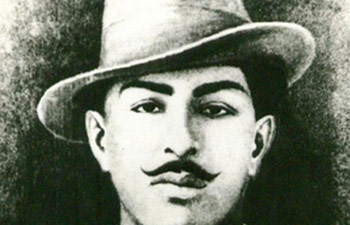Washington, Feb 5: Experts warned a US government panel last night that India's Muslims face risks of expulsion and persecution under the country’s new Citizenship Amendment Act (CAA) which has triggered major protests.
The hearing held inside Congress was called by the US Commission on International Freedom, which has been denounced by the Indian government as biased.
Ashutosh Varshney, a prominent scholar of sectarian violence in India, told the panel that the law championed by prime minister Narendra Modi's government amounted to a move to narrow the democracy's historically inclusive and secular definition of citizenship.
"The threat is serious, and the implications quite horrendous," said Varshney, a professor at Brown University.
"Something deeply injurious to the Muslim minority can happen once their citizenship rights are taken away," he said.
Varshney warned that the law could ultimately lead to expulsion or detention -- but, even if not, contributes to marginalization.
"It creates an enabling atmosphere for violence once you say that a particular community is not fully Indian or its Indianness in grave doubt," he said.
India's parliament in December passed a law that fast-tracks citizenship for persecuted non-Muslim minorities from neighboring countries.
Responding to criticism at the time from the US commission, which advises but does not set policy, India's External Affairs Ministry said the law does not strip anyone's citizenship and "should be welcomed, not criticized, by those who are genuinely committed to religious freedom."
Fears are particularly acute in Assam, where a citizens' register finalized last year left 1.9 million people, many of them Muslims, facing possible statelessness.
Aman Wadud, a human rights lawyer from Assam who traveled to Washington for the hearing, said that many Indians lacked birth certificates or other documentation to prove citizenship and were only seeking "a dignified life."
The hearing did not exclusively focus on India, with commissioners and witnesses voicing grave concern over Myanmar's refusal to grant citizenship to the Rohingya, the mostly Muslim minority that has faced widespread violence.
Gayle Manchin, the vice chair of the commission, also voiced concern over Bahrain's stripping of citizenship from activists of the Shiite majority as well as a new digital ID system in Kenya that she said risks excluding minorities.
More than 40 people were killed last week in New Delhi in sectarian violence sparked by the citizenship law.
India on Tuesday lodged another protest after the UN human rights chief, Michele Bachelet, sought to join a lawsuit in India that challenges the citizenship law's constitutionality.
 Kaur, 96, was the only surviving member of the martyr's immediate family. She was living in Toronto.
Kaur, 96, was the only surviving member of the martyr's immediate family. She was living in Toronto.




Comments
Add new comment